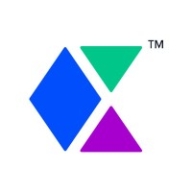

Cyware Cyber Fusion and GitGuardian Platform are competing in the cybersecurity environment, offering solutions for threat intelligence and code security. GitGuardian Platform seems to have the upper hand due to its advanced features and superior perceived value.
Features: Cyware Cyber Fusion includes comprehensive threat intelligence, real-time collaboration, and automated threat response. GitGuardian Platform focuses on detecting sensitive data in source code, infrastructure vulnerabilities, and offers robust integration capabilities.
Ease of Deployment and Customer Service: Cyware Cyber Fusion provides a streamlined deployment process with dedicated customer support for seamless onboarding. GitGuardian Platform offers agile cloud-based deployment but may face challenges in support responsiveness.
Pricing and ROI: Cyware Cyber Fusion is attractively priced, contributing to strong ROI. GitGuardian Platform, potentially higher in setup cost, delivers significant ROI through specialized code security features.
| Product | Market Share (%) |
|---|---|
| GitGuardian Platform | 1.2% |
| Cyware Cyber Fusion | 1.4% |
| Other | 97.4% |

| Company Size | Count |
|---|---|
| Small Business | 10 |
| Midsize Enterprise | 9 |
| Large Enterprise | 13 |
More than just a security automation tool, Cyber Fusion unites threat intel and SOAR to automate any security tool, orchestrate any environment, and collaborate across any boundary, to yield more intelligent threat response.
GitGuardian is a comprehensive platform focused on enhancing Non-Human Identity security by integrating Secrets Security and Secrets Observability to detect and manage secrets across development environments.
As cybersecurity threats increasingly target NHIs like service accounts and applications, GitGuardian offers a robust solution by supporting over 450 types of secrets and deploying honeytokens for additional defense. Trusted by leading organizations and developers, its monitoring and quick alert system enable effective detection and management of sensitive data, strengthening operational security across platforms.
What are the key features of GitGuardian?In the tech industry, GitGuardian is employed to safeguard APIs and sensitive credentials across code repositories like GitHub. Companies benefit from instant alerts and integrations with tools like Slack, effectively managing risks and enhancing security policies. While popular in sectors dependent on development agility, there is room for further improvement in customization and integration to meet specific industry needs.
We monitor all Threat Intelligence Platforms (TIP) reviews to prevent fraudulent reviews and keep review quality high. We do not post reviews by company employees or direct competitors. We validate each review for authenticity via cross-reference with LinkedIn, and personal follow-up with the reviewer when necessary.